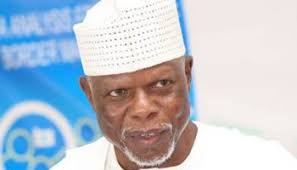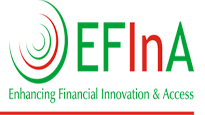Worried by the potential negative social and economic implications of the rising debt stock of Nigeria, the Socio-Economic Rights and Accountability Project (SERAP) has asked the leadership of the National Assembly to decline approval for the latest President Buhari’s request for a fresh $4 billion and €710 million foreign loans.
Specifically, SERAP appealed to the leadership of the two chambers of the Legislature – Senate President, Senator Ahmad Lawan, and Speaker of House of Representatives, Hon. Femi Gbajabiamila to turn down the request.
The civil society organization based its point on the fact that Nigeria’s debt crisis was getting out of control, with N11.679 trillion committed into debt servicing between 2015 and 2020, with only N8.31 trillion expended on capital projects.
The civil group, requested that before granting the latest request of the Executive, the leadership of the NASS should request for details of spending of all loans obtained since May 29, 2015 by the government and be satisfied with the disbursements.
The CSO, in an open letter dated 18 September 2021 signed by its Deputy Director, Mr Kolawole Oluwadare, copied to the Chairmen of the Public Accounts Committees of both chambers, expressed “concerns about the growing debt crisis.”
It also expressed concerns over the lack of transparency and accountability in the spending of loans that had been obtained as well as its perceived unwillingness or inability of the National Assembly to vigorously exercise its constitutional duties to check the apparently indiscriminate borrowing by the government.
SERAP stated: “The National Assembly should not allow the government to accumulate unsustainable levels of debt, and use the country’s scarce resources for staggering and crippling debt service payments rather than for improved access of poor and vulnerable Nigerians to basic public services and human rights.
“Accumulation of excessive debts and unsustainable debt-servicing are inconsistent with the government’s international obligations to use the country’s maximum available resources to achieve progressively the realisation of economic and social rights, and access of Nigerians to basic public services.
“The country’s public debt has mushroomed with no end in sight. The growing national debt is clearly not sustainable. There has been no serious attempt by the government to cut the cost of governance. The leadership of the National Assembly ought to stand up for Nigerians by asserting the body’s constitutional powers to ensure limits on national debt and deficits.
“SERAP urges you to urgently propose a resolution and push for constitutional amendment on debt limit, with the intent of reducing national debt and deficits.
“This recommendation is entirely consistent with the constitutional oversight functions and spending powers of the National Assembly, and the country’s international anti-corruption and human rights obligations.
“Indiscriminate borrowing has an effect on the full enjoyment of Nigerians’ economic and social rights. Spending large portion of the country’s yearly budget to service debts has limited the ability of the government to ensure access of poor and vulnerable Nigerians to minimal health care, education, clean water, and other human needs”, the civil society group added.
SERAP further cautioned that should the National Assembly and its leadership fail to rein in government borrowing, and to ensure transparency and accountability in the spending of public loans, it would consider appropriate legal action to compel the National Assembly to discharge its constitutional duties
It would be recalled that President Buhari had, in a letter dated 24 August, 2021 requested the approval of the National Assembly to borrow $4,054,476,863 billion and €710 million, on the grounds of “emerging needs.”




